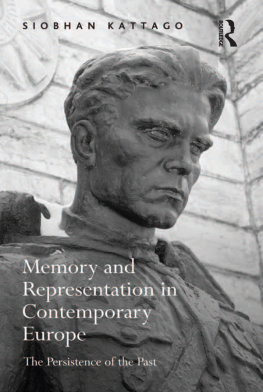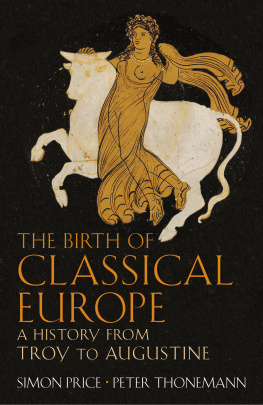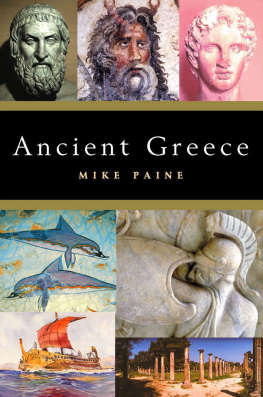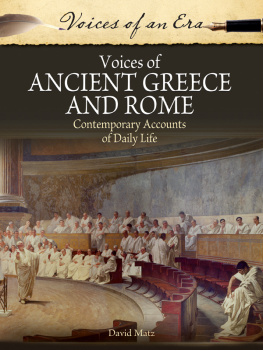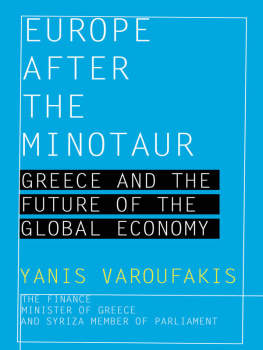First published 2000 by Ashgate Publishing
Reissued 2019 by Routledge
2 Park Square, Milton Park, Abingdon, Oxon, OX14 4RN
52 Vanderbilt Avenue, New York, NY 10017
Routledge is an imprint of the Taylor & Francis Group, an informa business
Copyright 2000, Achilleas Mitsos and Elias Mossialos
All rights reserved. No part of this book may be reprinted or reproduced or utilised in any form or by any electronic, mechanical, or other means, now known or hereafter invented, including photocopying and recording, or in any information storage or retrieval system, without permission in writing from the publishers.
Notice:
Product or corporate names may be trademarks or registered trademarks, and are used only for identification and explanation without intent to infringe.
Publisher's Note
The publisher has gone to great lengths to ensure the quality of this reprint but points out that some imperfections in the original copies may be apparent.
Disclaimer
The publisher has made every effort to trace copyright holders and welcomes correspondence from those they have been unable to contact.
A Library of Congress record exists under LC control number:
ISBN 13: 978-1-138-73406-7 (hbk)
ISBN 13: 978-1-315-18739-6 (ebk)
George Alogoskoufis is Professor of Economics at the Athens School of Economics, and a Member of the Greek Parliament. Since 1997 he has been economics spokesman for New Democracy, the opposition party in Greece.
Michael G. Arghyrou is Lecturer in Economics at Brunei University, London. His research interests and publications are in international macroeconomics, monetary economics and Greek marcroeconomic performance.
Nicos Christodoulakis is Professor of Economics at the Athens School of Economics, Member of the Greek Parliament and Deputy Minister of Finance in Greece.
Dimitris N. Chryssochoou is Reader in European Integration at the University of Exeter. For 1999-2000 he is Visiting Fellow at the Centre of International Studies at Cambridge University and Visiting Scholar at the Institute on Western Europe at Columbia University.
Theodore A. Couloumbis is Professor of International Relations at the University of Athens and Director General of the Hellenic Foundation for European and Foreign Policy (ELIAMEP).
Efterpe Fokas is a PhD candidate in the European Institute at the London School of Economics and Political Science and co-editor of the ASEN Bulletin (Association for the Study of Ethnicity and Nationalism).
Nikolas C. Garganas is the Deputy Governor of the Bank of Greece and an Honorary Fellow of the London School of Economics and Political Science. His research interests and publications include monetary union and the Greek monetary system.
Harris C. Georgiades is a PhD candidate at the Centre for Euro-Mediterranean Studies at the University of Reading working on EU-Turkish relations.
Panagiotis C. Ioakimidis is Professor of European Policy and Institutions at the University of Athens and has been a senior policy advisor on European Union affairs for the Greek Ministry of Foreign Affairs.
The late Yannos Kranidiotis was the Alternate Foreign Affairs Minister and Minister for European Affairs in Greece. His life was cut short in a tragic airplane accident on 16th September 1999.
Lois Labrianidis is Professor of Economics at the University of Macedonia in Thessaloniki. His research and publications focus on industrial location, regional incentives and the spatial aspects of subcontracting.
Panagiotis Liargovas is Visiting Assistant Professor at the the Athens School of Economics. He had previously worked at the European Commission, the Greek Ministry of Finance and the Hellenic Centre for European Studies.
Emmanouel C. Mamatzakis is Lecturer in Economics at Queen Mary and Westfield College, His current research focuses on the link between public infrastructure and productivity growth of the EU in general and of the Greek economy in particular.
Achilleas Mitsos is a Director-General at the European Commission and Robert Schuman Visiting Fellow at the European Institute at the London School of Economics and Political Science.
Andreas Moschonas is Associate Professor of Political Sociology and holds the Jean Monnet Chair in European Studies at the University of Crete, Greece. His research focuses on political parties, European elections and trade unions and European integration.
Elias Mossialos is Reader in European health policy at the Department of Social Policy, London School of Economics and Political Science and Director of LSE Health.
George Pagoulatos is a Post-doctoral Fellow at Princeton University after obtaining his doctorate from St. Anthony's College, Oxford.
Christos J. Paraskevopoulos has a PhD from the London School of Economics and Political Science. His academic interests and publications focus on institutions, EU regional policy and integration theory.
Maria Petmesidou is Professor of Social Policy at Democritus University in Thrace. Her research and publications focus on social policy, industrial change, labour markets and social exclusion.
Stelios Stavridis holds the Jean Monnet Chair in the International Dimension of European Integration, and is Director of the Euro-Mediterranean Centre at The University of Reading.
Panos Tsakloglou is Associate Professor in the Department of International and European Economic Studies at the the Athens School of Economics.
Loukas Tsoukalis holds the Eleftherios Venizelos Chair of Contemporary Greek Studies and is also Director of the Hellenic Observatory of the European Institute at the London School of Economics and Political Science,
Aristotle Tziampiris has a PhD from the London School of Economics and currently is working for the Institute of Defence Analysis in Athens.
Thanos Veremis is Professor of Modern History at the University of Athens and President of the Board at the Hellenic Foundation of European and Foreign Policy (ELIAMEP).
Axel Sotiris Walldn has served as General Secretary of the Greek Ministry of National Economy and as visiting professor at the Panteion University, Athens. He is currently working in the European Commission.
ELIAS MOSSIALOS AND ACHILLEAS MITSOS
Contemporary Greek society is characterised by an all embracing trend for reform. As in all European economies, it should modernise in order to survive the inevitable structural changes taking place in the international system as a result of globalisation. However, for Greece this task is additionally constrained by the need to overcome continual problems which characterise the Greek polity, and are rooted in the historical and political culture of the country: institutional centralisation combined with ineffective policy-making and implementation, intense politicisation of economic and social relations, an absence of stratagem, an overwhelming public sector, a weak but paternalistic state and a ubiquitous network of clientelistic relations, are all features of the contemporary Greek polity. (Mouzelis, 1990; Tsoukalas, 1983; Charalambis, 1989; Diamandouros, 1994). In addition, as highlighted by Mouzelis (1995) the Greek political system is also distinguished by 'the uneasy co-existence of clientelism and populism; both entail a vertical, authoritarian integration of the people into the national political arena and indicate an extremely weak civic society.' This in turn is characterised by an atmosphere of disbelief and scepticism concerning the longevity, fairness and trustworthiness of the political system. In this context, the project and process of transforming Greek society and generating a public and political consensus toward modernisation becomes a very difficult, though not impossible, task.




